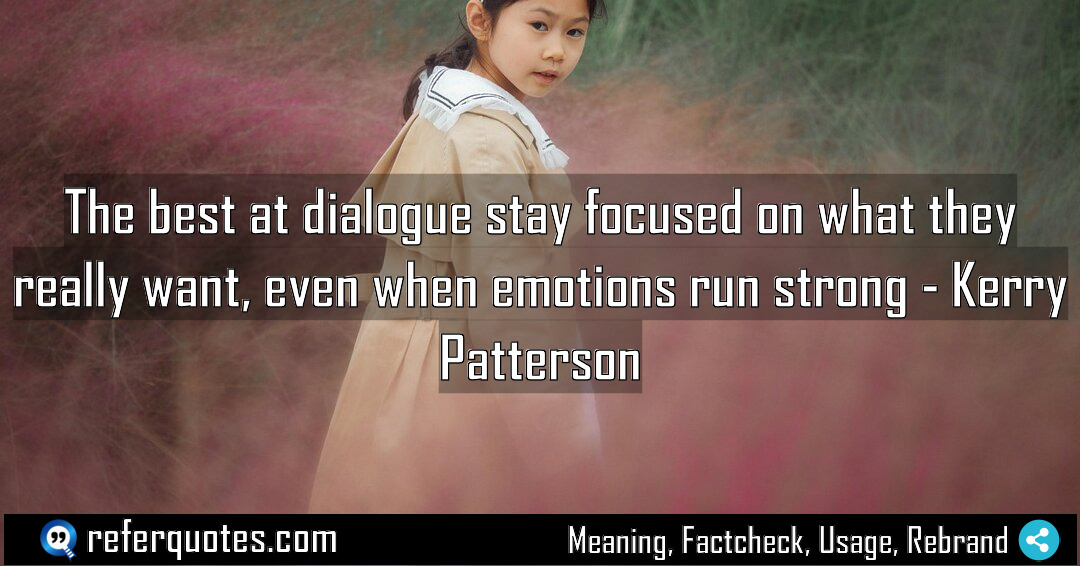You know, “The best at dialogue stay focused on what they really want” even when things get heated. It’s the secret sauce for navigating any tough conversation without losing your cool or your objective.
Share Image Quote:Table of Contents
Meaning
At its heart, this quote is about not letting a surge of emotion hijack a conversation that matters. It’s about keeping your true north—your ultimate goal—in sight, even when you’re feeling attacked, angry, or afraid.
Explanation
Let me break this down for you. We’ve all been there. A discussion with a colleague or your partner starts to spiral. Voices get louder, and suddenly, you’re not trying to solve the problem anymore—you’re trying to win. You’re trying to prove a point or defend your ego. That’s the exact moment this principle kicks in.
The masters of dialogue, the people who consistently get good outcomes, have this almost superhuman ability to hit the pause button internally. They ask themselves one powerful question: “What do I really want?” Not to punish the other person. Not to be right. But what’s the real, positive outcome I’m after for this relationship, this project, or myself?
It’s a mental anchor. And it completely changes the game.
Quote Summary
| Context | Attributes |
|---|---|
| Original Language | English (3668) |
| Category | Personal Development (697) |
| Topics | emotion general (105), focus (155), intent (7) |
| Literary Style | logical (24), straightforward (17) |
| Emotion / Mood | calm (491) |
| Overall Quote Score | 78 (178) |
Origin & Factcheck
This wisdom comes straight from the classic business and communication book, Crucial Conversations: Tools for Talking When Stakes Are High. The authors are Kerry Patterson, Joseph Grenny, Ron McMillan, and Al Switzler. The book first hit shelves in 2002 in the United States and has become a foundational text.
You won’t find this quote misattributed to someone like Dale Carnegie, thankfully. Its home is firmly in the “Crucial Conversations” methodology.
Attribution Summary
| Context | Attributes |
|---|---|
| Author | Kerry Patterson (35) |
| Source Type | Book (4032) |
| Source/Book Name | Crucial Conversations: Tools for Talking When Stakes Are High (35) |
| Origin Timeperiod | 21st Century (1892) |
| Original Language | English (3668) |
| Authenticity | Verified (4032) |
Author Bio
Kerry Patterson coauthors influential books that help people tackle tough conversations, drive change, and build accountability at work and beyond. He cofounded VitalSmarts (now Crucial Learning) and spent decades developing training that organizations implement globally. He earned a master’s degree from Brigham Young University and completed doctoral work in organizational behavior at Stanford, and he has taught and consulted widely. The Kerry Patterson book list includes Crucial Conversations, Crucial Accountability, Influencer, and Change Anything—bestselling titles that continue to shape modern leadership and communication practices.
| Official Website
Where is this quotation located?
| Quotation | The best at dialogue stay focused on what they really want, even when emotions run strong |
| Book Details | Publication Year/Date: 2002; ISBN/Unique Identifier: 9780071771320; Last Edition: 3rd Edition (2021); Number of Pages: 272. |
| Where is it? | Chapter: Start with Heart, Approximate page from 2021 edition |
